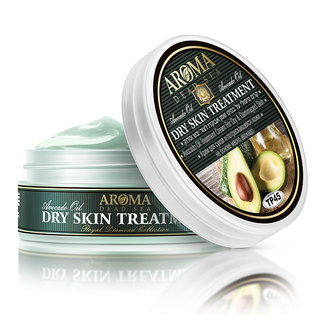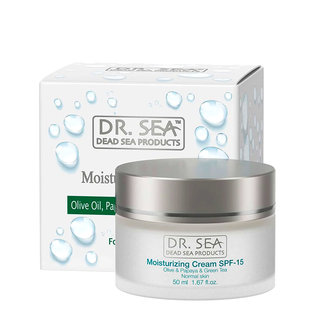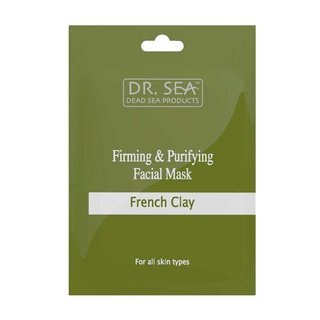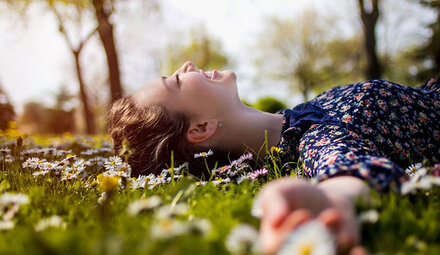
Young Skin - Characteristics and Care
Young skin can be subdivided into that of babies, young children and teenagers:
Baby's Skin
Characteristics
The skin of a newborn baby is five times as thin as an adult skin, making it much more delicate and sensitive. The baby skin does not yet have a protective acid mantle. The acid mantle is a "jacket" that protects against dehydration, irritation and infections. The horn layer, part of the epidermis, is not yet fully grown. It protects against bacteria and is not fully developed until the fourth year of age. Therefore, the baby's skin dries out faster and is more sensitive to UV radiation, because babies have less skin pigmentation than adults.
Care
- Bath your baby up to two or three times a week, not more often. Use lukewarm water for this.
- Use a mild soap to cleanse the skin.
- It is best to pat your baby dry after washing with a cotton diaper. It absorbs more moisture than a normal towel.
- Pay extra attention to drying the skin folds.
- Use the Avocado Cream to hydrate your baby's skin after bathing. You can also treat dry, chapped cheeks with it.
Common skin problems
- Hormonal spots (baby acne): red spots with a blister on it. Hormonal spots are mainly found in the skin folds in the diaper area.
- Milk spots: look like blisters and are located in the face, on the head or in the neck. These spots usually occur three to five weeks after birth and disappear automatically.
- Dry skin: the skin is red and rough. Hydrate dry skin with the Avocado Cream.
- Cradle Cap: loose, oily crusts on the head. You can rub the head with our massage oil to loosen the crusts.
- Diaper rash: The skin is chapped, red and sore and can open. Bacteria that are in the stool can aggravate the diaper rash. Diaper rash occurs because the skin comes into contact with urine. Try therefore to keep the legs as dry and clean as possible. Change the diaper regularly. Change your baby extra often with diarrhea. Wash the legs daily with lukewarm water and apply the Aloe Vera Gel. You can also sooth red and irritated skin with it. Occasionally leave your baby without diaper for a while.
- Winter cold: if it is cold and bleak outside, you can hydrate and protect your baby's skin with the Avocado Cream before going outside. This prevents dehydration.
- Summer sun: The baby skin is extra sensitive to the sun. Keep your baby completely out of the sun until he is six months old. Always use a sunscreen product for babies with a high protection factor. You should also use sunscreen in the shade. Avoid the full sun at all times and put a sun hat on your baby.
The skin of young children between 4 and 12 years of age
Characteristics
The skin is slightly more developed around the age of 4. The child's skin, however, is still thinner and has less pigmentation than adult skin. The sensitivity to UV radiation therefore remains. Only aound the age of 12, the structure and function of the child's skin matches that of an adult.
Care
One of the most important organs of your child is the skin. It is therefore very important to keep it healthy. Your child may suffer from dry skin. You keep the moisture level in balance by letting your child drink enough water. One child develops irritated skin faster than the other. You cannot change this sensitivity nor its skin type. What matters is that you care for the skin as well as possible.
- If your child is drooling excessively or has a runny nose, this can irritate the skin. Protect the cheeks, chin and nose with a little Avocado cream.
- In the winter the air is dry: outside because of the cold and inside because of central heating. It is advisable not to set the heating too high (maximum 20 degrees) and to allow water to evaporate near the heating. This keeps the humidity level up. However, your child may suffer from chapped lips and dry skin, which can flake and itch. Regular hydration with the Avocado Cream helps. It is best to rub your child with this after showering or after bathing when the skin is still moist. You can also treat chapped cheeks with it.
- In the summer, overheating or warm clothing can cause heat bumps that are visible as small bumps on red skin. You can rub them with Aloe Vera Gel to reduce the itch and calm the redness. Leave the skin uncovered as much as possible. Also be careful with the sun: your child may suffer from a sun allergy. Always use a sunscreen with sufficient protection.
- Taking a bath: Warm water dries out the skin. Therefore, do not allow your child to shower or bathe too often and for too long. All our bath/shower gels can be used for children from 4 years of age. They are mild to the skin, neutralize the effects of hard water and do not dry out the skin. You can gently pat dry your child's delicate skin. It is important that the skin is thoroughly dry before dressing.
- Sensitive skin rash: If your child has sensitive skin, you should only use cotton clothing and bedding. The skin may react to the detergent you are using. Clean red legs as much as possible with warm water, soothe them with Aloe Vera Gel and let the skin breath.
Check your child's skin regularly: if something is wrong, you are early to find out. Check on warts, redness or strange birthmarks. If your child is itchy or if the skin looks flaky, it may be due to eczema or an allergy.
When your child suffers from eczema you can wash it with Dead Sea salt. This can bring much relief and improvement to the skin condition. Doctors often immediately prescribe hormone ointments. This quickly removes the itch, but it makes the skin thin and does not resolve the cause. Read here what you can do best with eczema.
Teenage skin
Characteristics
The hormonal changes of puberty can have a major impact on the skin, especially in the face and on the shoulders, chest and back. Increased production of sebum can lead to the skin becoming more oily and more sensitive to acne. This usually disappears with adulthood, but sometimes, especially in women, acne can persist into middle age.
Care
- Clean your skin both in the morning and in the evening.
- Use lukewarm to cold water to clean your face. This way you prevent the production of sebum being stimulated.
- If you suffer from impurities, dab them with the Acne Lotion before you go to sleep. You can also use a Mud Mask 1-2 times a week.
- Keep your hands out of your face. Otherwise your skin will be constantly irritated and bacteria will remain on the skin surface.
- Exercise outdoors regularly. This ensures a better blood circulation and a fresh complexion.
- Make sure your face and neck are as free as possible: long hair and scarves are huge bacteria carriers. Wear your hair loose and wash your scarves regularly.
- Do you suffer from pimples? No matter how tempting it is, don't touch or pop them. The pressure can cause inflammation of the skin. If you can't help it, at least use a tissue to prevent infections.
Read more about acne? Click here.
If you do not suffer from acne, it is also wise to clean your skin twice a day. You can clean your skin with a cleansing product of your choice. In addition, you can use the Avocado/Aloe Vera Cream as a night cream.











